As a free-diver and photographer, Julia Wheeler’s documentary work shows the wonder of the ocean and, conversely, the damage we can inflict upon it. Now living in Sydney, she grew up on the beaches of Western Australia. “I want to show the beauty of the world and raise awareness of what’s happening to it,” she says.
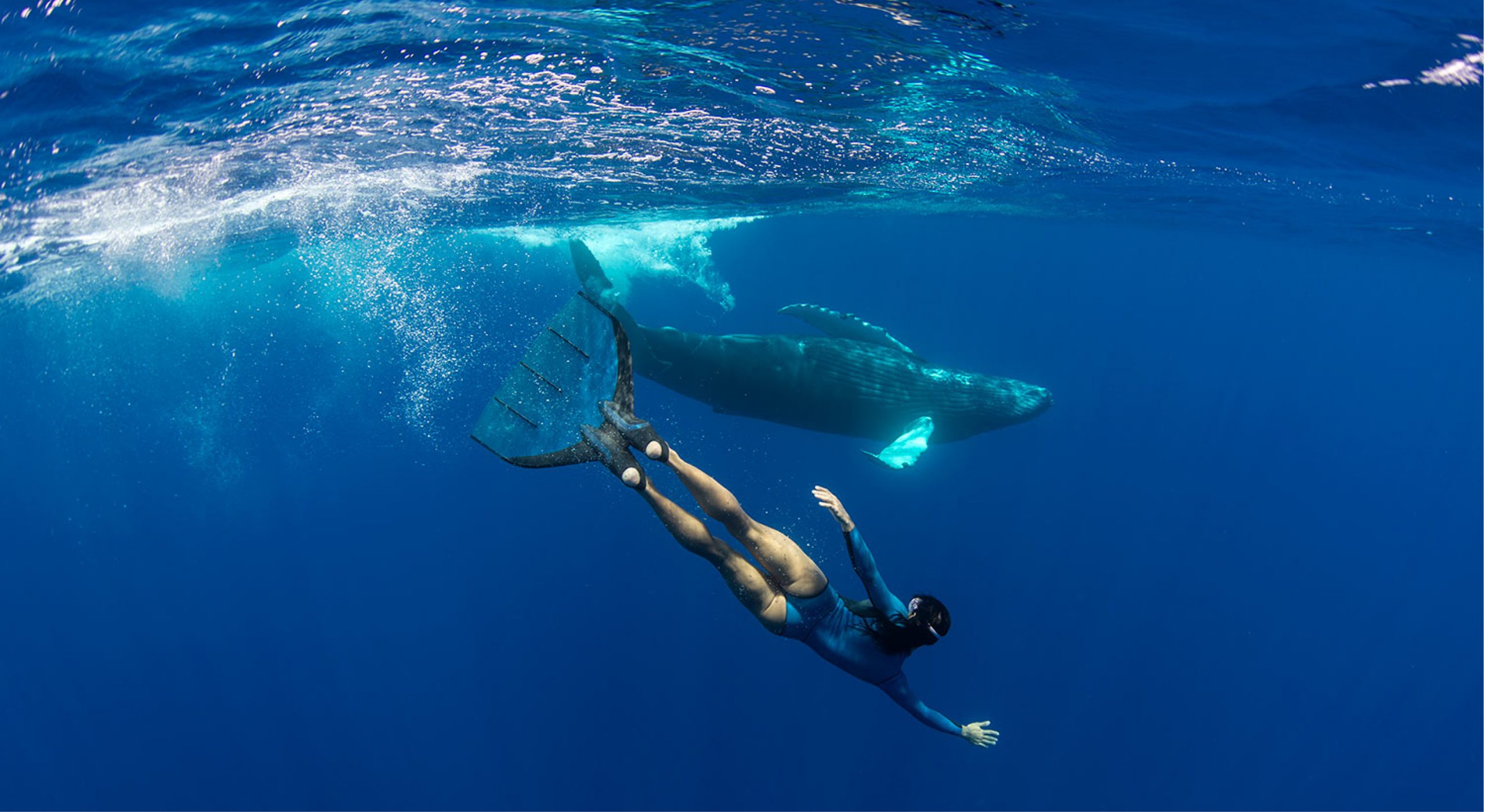

I’ve been a free-diver for about four years and when I’m diving this way, swimming without the encumbrance of tanks and snorkel, I feel like I’m flying. Cruising along a reef, surrounded by beauty, I often forget I’m holding my breath.
Through my work, I want to show the beauty of the marine world and raise awareness of what’s happening to it. Over the years I’ve seen some incredible sights. One of the most amazing experiences of my life was swimming with a baby humpback whale and its mother in Tahiti in 2017.
We’d been watching from the boat and although the mum was sleeping and I didn’t want to disturb her, the calf was looking up at me and I thought, ‘Ok, I’m going to go down.’
I was wearing a mono fin, which makes you swim with a different motion, more like a fish, and when I reached a depth of about 15 metres, the calf saw me and it followed me up. Then we just played – I’d go upside down, he’d go upside down. I would open my arms and he would open his fins; I would roll to the surface and he did the same. All the while the mother was cruising around us in the black, and I could feel and hear her grunts vibrating all around me.
I was both petrified – the mum weighed about 20 tonnes – and exhilarated. It was a complete privilege.
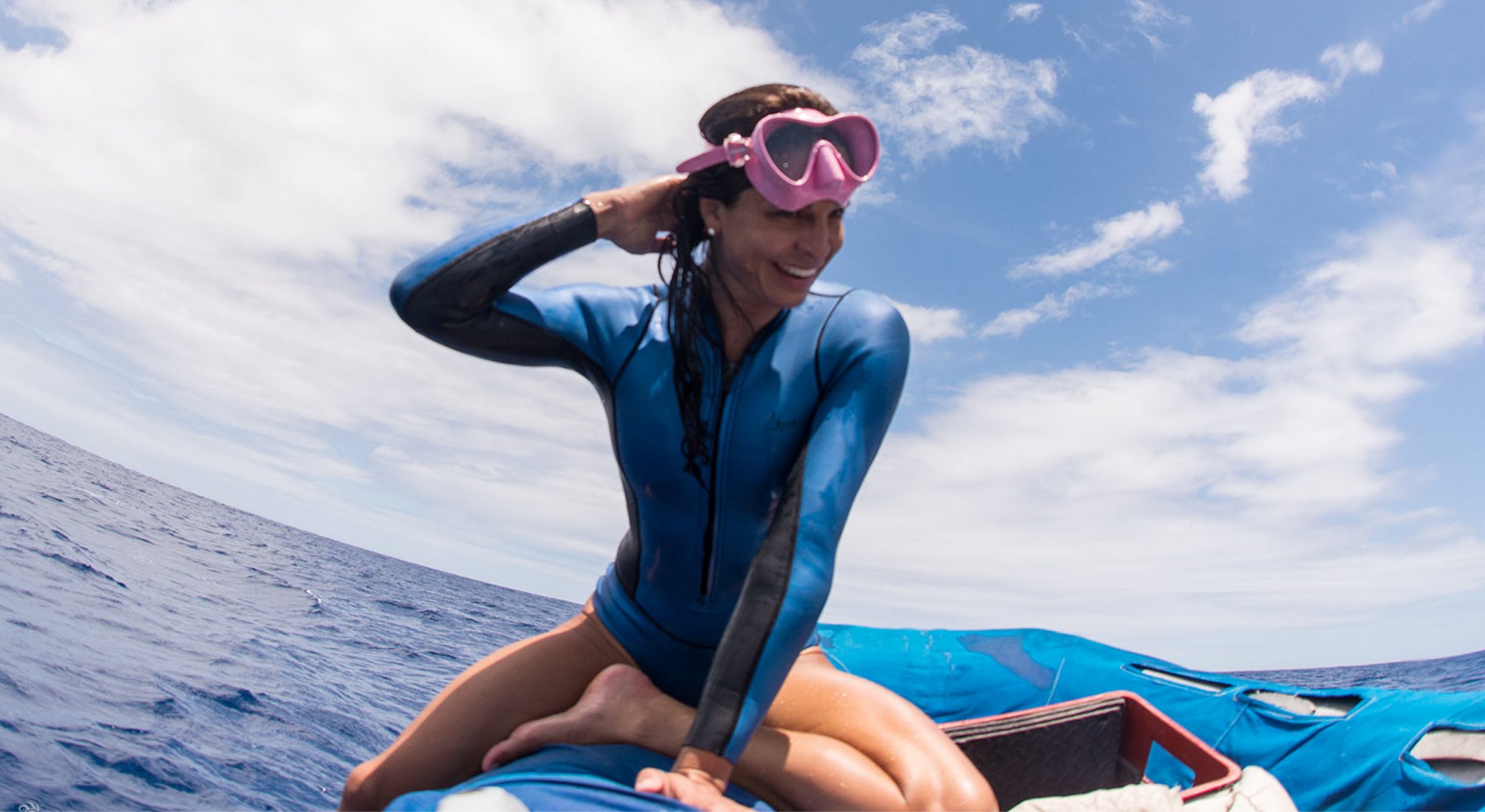

But along with beauty, I’ve seen pollution that I find hard to talk about. One day, four years ago in Bali, when I was training for the Australian Free-diving Championships, my friend Trista and I emerged into a mass of rubbish, which engulfed me and I was petrified. It was the most disturbing thing that had ever happened to me in the water. I filmed it and put it online because I thought people had to see this, and the video had a huge response – about 20 million hits.
Then in Gabon recently, filming for my documentary series, WildShots, I watched nesting leatherback turtles that couldn’t get back out to sea because there was so much plastic on the beach. It was horrifying. Why is this happening? Why do people hear about what’s occurring in our oceans and fail to act?
I’ve always loved the sea, forever and ever. I could swim before I could walk, thanks to my grandmother’s lessons at the beach – throwing me in, teaching me how to float. It was literally sink or swim. So I was in love with the ocean from being so small. I went to the beach every day – as a kid in WA, that’s what you do – and over time you form a relationship with the ocean. It controls and tames you; it tells you it’s more powerful than you are, and it tests your courage.
I don’t know how to do anything other than what I do. I just follow this path I’m on and try to raise awareness, and it’s hard work and frustrating but also beautiful.
“I feel very connected to the ocean”
Growing up in Sydney, Elsa Morgan’s happiest memories were made at the beach, jumping in the waves with her sisters and mum. Now a make-up artist and mother of two, she supports the work of La Mer’s Blue Heart Ocean Fund in raising awareness of the challenges facing the ocean
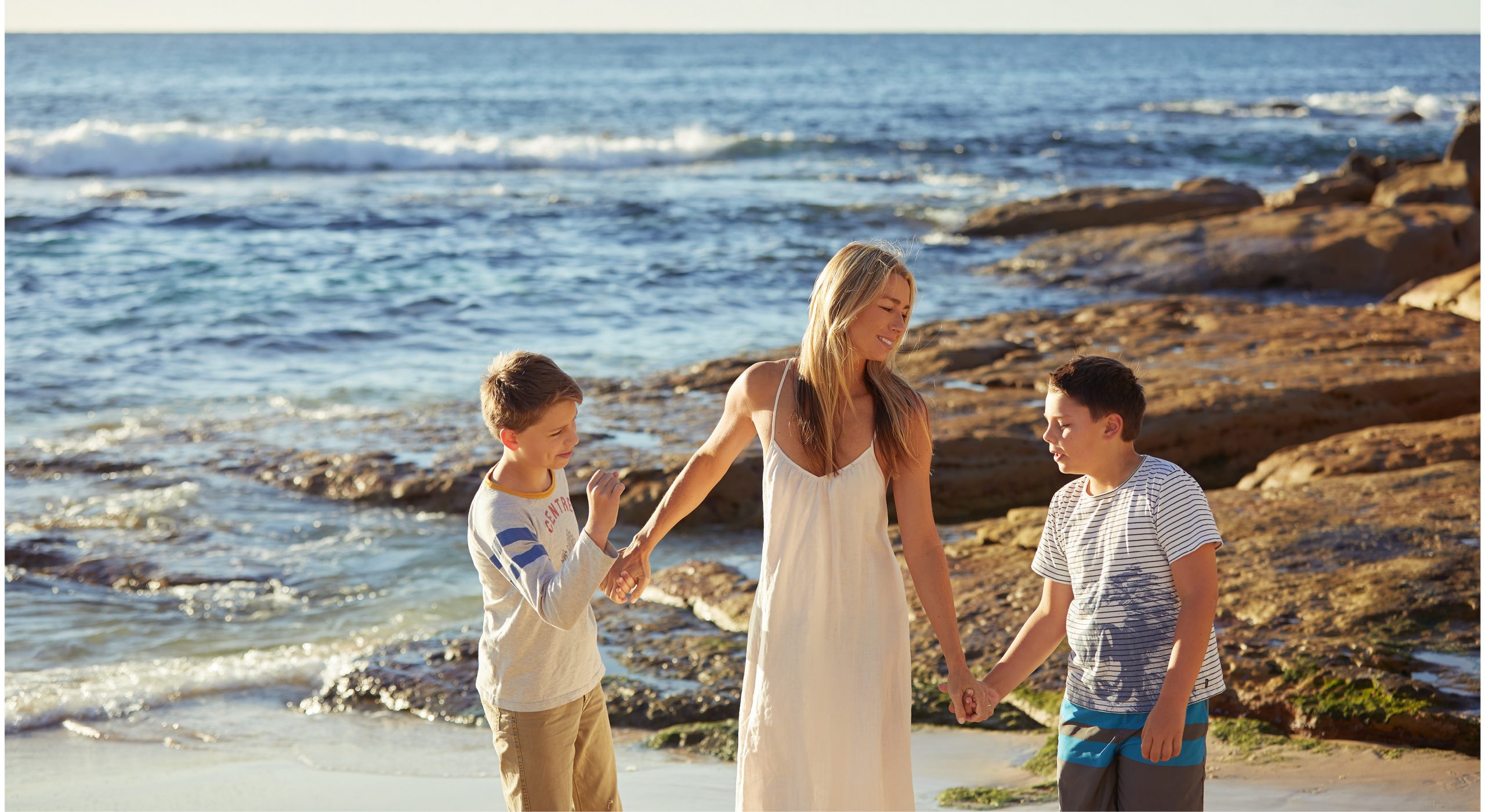

“The other day I saw a little girl come out of my children’s school holding an armful of rubbish, which she’d obviously collected from the gutter. She was feisty, this six year old, and she was really mad about it. The outrage that children can experience about what they see around them – I love it! There’s a lot to be said for child-like common sense.
We live in a beautiful country and that comes with an obligation to raise our children to be aware of the impact we have on our environment, and to lead the way, not only with our voices but our daily actions. I try to live lightly, recycling and reusing, picking up bottles I see on the ground. I am such a fan of Take 3 For The Sea, which encourages us to take three pieces of rubbish with us when we leave the beach. I think being aware of my own personal impact and using my voice wherever I can is important.
That’s also why I love the Blue Heart campaign; it reflects La Mer’s thoughtful, conscious ethos. I love the feel of the products on my skin, and the way they combine scientific knowledge with pure ingredients.
My mum came from Europe and so I think I saw the ocean and Sydney through her eyes, as a newcomer. She really appreciated the sun and the sea – that gorgeous, refreshing jump in the ocean and salty skin was what happiness was. And I grew up thinking that if you have salty skin and sand between your toes, life is good.
I grew up thinking that if you have salty skin and sand between your toes, life is good.
My husband studied as a marine biologist and now makes documentary films that often carry a message of sustainability and protection – he’s making one at the moment about the east Australian current. You can’t witness that without becoming an advocate for protecting the environment.
I’ve always felt connected to the ocean. When I went into labour with my first child, we were living in Bondi and I walked down to the ocean that evening, with contractions, and sat on the beach with my husband. I needed to feel connected to nature and to this amazing, natural process that was going on in my body. I looked at the moon rise and the sun set, with my feet in the sand and hearing the waves, and it really helped me. And when I was in labour, every contraction was a wave for me; I visualised waves. I went back to the ocean in my mind. I think that walk down to the beach really helped me.
Now I take my children to the beach and it’s probably no coincidence that I’ve replicated my own childhood experience of jumping the waves, picnics and fun. And I like to think that the beautiful, infinite horizon of the ocean gives them a sense of potential, possibility and freedom. I see them as my future eco army, absolutely.”
“An individual can take action and make a difference”
Tooni Mahto is a marine biologist, oceanographer and campaigner for the Australian Marine Conservation Society. At the moment she’s working on a campaign to protect endangered species in the Great Barrier Reef
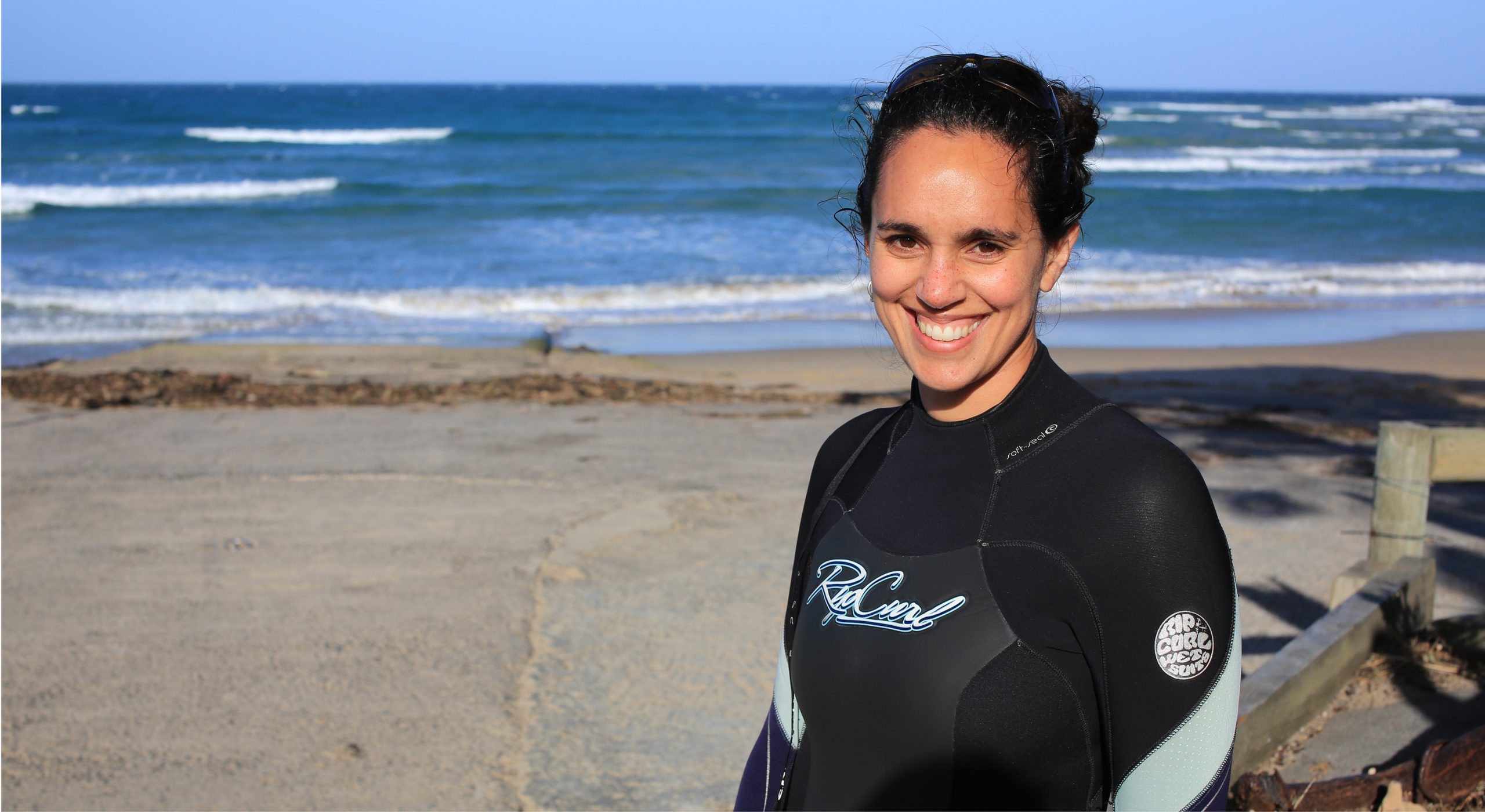

“I think we are at a critical point in the way in which we look after the world. Not just in Australia, but globally. The extinction crisis is real. We are driving a whole range of animals off the face of the planet faster than we can keep up.
Does it matter if we lose them? If we lose, for example, some tiny anemones that have become extinct on some tiny Australian islands, on our watch?
I think it really, fundamentally matters. It matters ethically; we have a stewardship responsibility for the planet but with many species it’s also about shoring resilience. If we haven’t got enough of one species in the ocean, it’s very challenging to anticipate the consequences of that. It affects the food chain, which affects us.
We have a stewardship responsibility for the planet
I’ve always loved the ocean. I love the feeling of being in water. I remember exploring rock pools as a child and being fascinated by limpets, these tiny creatures that exist in this place where sometimes they’re in water and sometimes they’re not. That fascination of just seeing a pool with creatures in it. To me, that was miraculous and it still is now.
I’m lucky to have had a ‘portfolio’ career, encompassing lots of different experiences! I’ve led scientific expeditions around Lake Malawi, worked as a diving instructor for a year on the east coast of South Africa, and I spent a year on a boat filming a TV series, Oceans. The most incredible experience was swimming with sperm whales in the Sea of Cortez, Mexico. They’re the largest predator in the world – whales with teeth – and the feeling of being so minuscule in the water with these magnificent creatures was staggering. I wasn’t afraid; I felt enormous respect.
Today, I work as leader of the fisheries and endangered species section of the Australian Marine Conservation Society, and at the moment we’re campaigning for the Great Barrier Reef.
A lot of people think the Reef is closed to all forms of fishing activity, but it’s not – it’s a multi-use marine park, so there are areas where commercial fishing is allowed. There, gill nets – fishing nets up to 1.2 kilometres long, made of an almost invisible fibre that hangs in the water – are used to catch sharks (flake) for domestic and international markets. The problem is that they catch endangered sharks, like hammerheads, and dugongs, and vulnerable species of dolphins like the snub fin dolphins that live close to the shore.
A lot of people think The Great Barrier Reef is closed to all forms of fishing activity, but it’s not.
My role is to engage the community and let people know what’s happening, and then to work with the government to develop strategies and laws to reduce the cost of fishing on the ocean. Fishing can be done sustainably without harming the ocean, or it can be done in critically bad ways. The majority of endangered animals at the moment have been brought to the brink by fishing.
Addressing issues like climate change can sometimes feel so challenging – it’s so big and fundamental that it can feel hard to know what you as an individual can do. But in my job – fisheries – it’s more specific. An individual can take action and make a really big difference. I see that at work every day.
For example, we produce a sustainable fishing guide – it’s a traffic-light system, with green, amber and red – that recommends which seafood is good to eat at the moment and which is caught at a high environmental cost. So it’s giving people a choice. And these public choice programs work. We get told many times from fishing industry representatives and from government and fishery managers about the impact of these programs. We can make an impact.”
For over a decade, La Mer has been committed to protecting our precious seas around the world. This year, they continue their mission by helping safeguard marine areas through awareness-raising initiatives and charitable donations from the La Mer Blue Heart Oceans Fund, to help ensure flourishing seas for generations to come.
Every year, the brand releases a limited edition decorative jar of Crème de la Mer to raise further awareness and to commemorate their commitment to supporting ocean conservation.
*Purchase of the commemorative jar does not impact La Mer’s charitable donations.




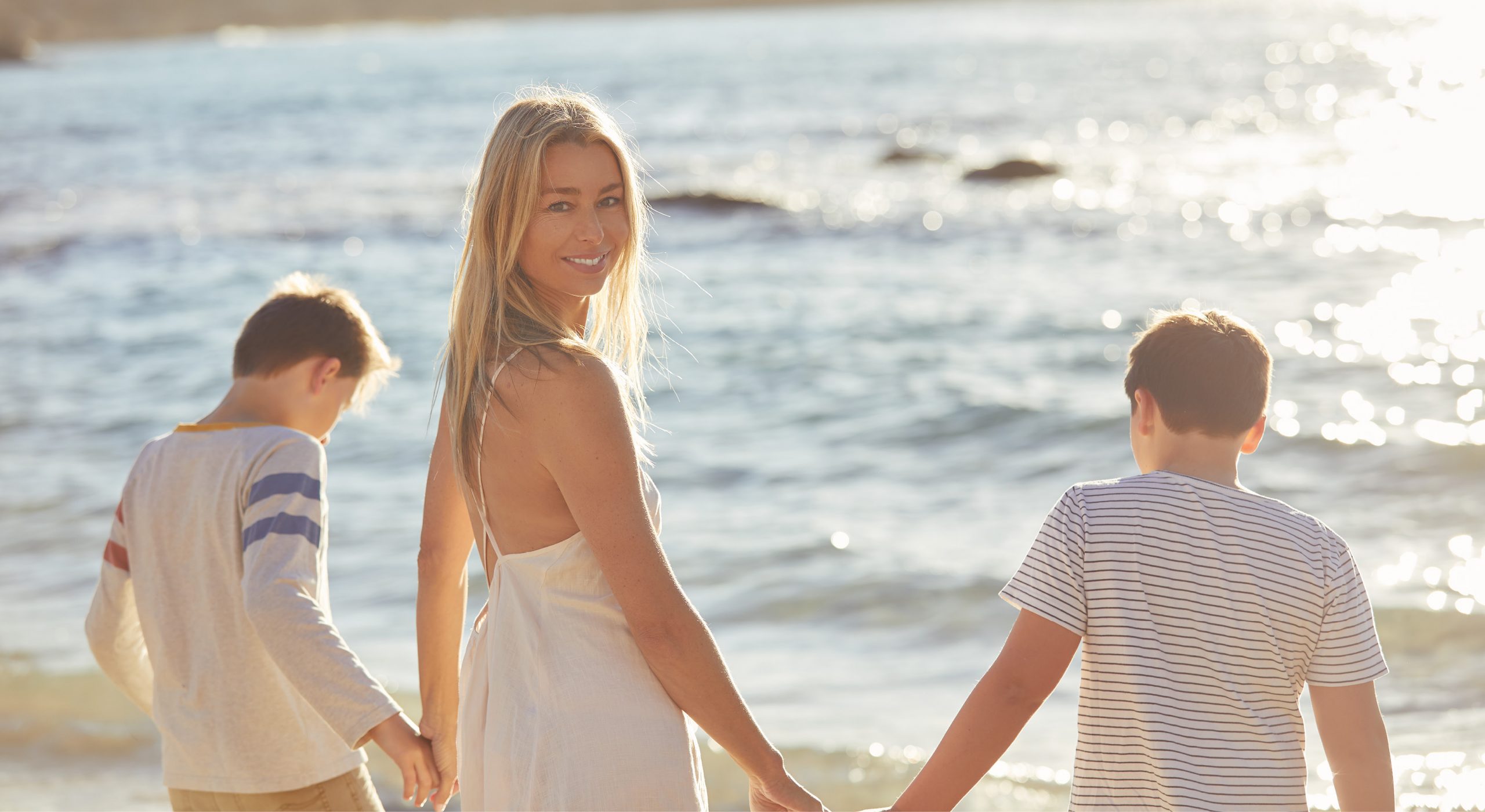
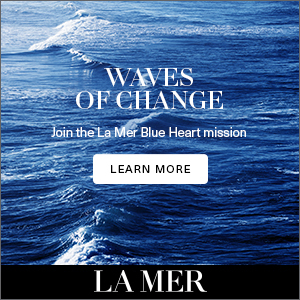
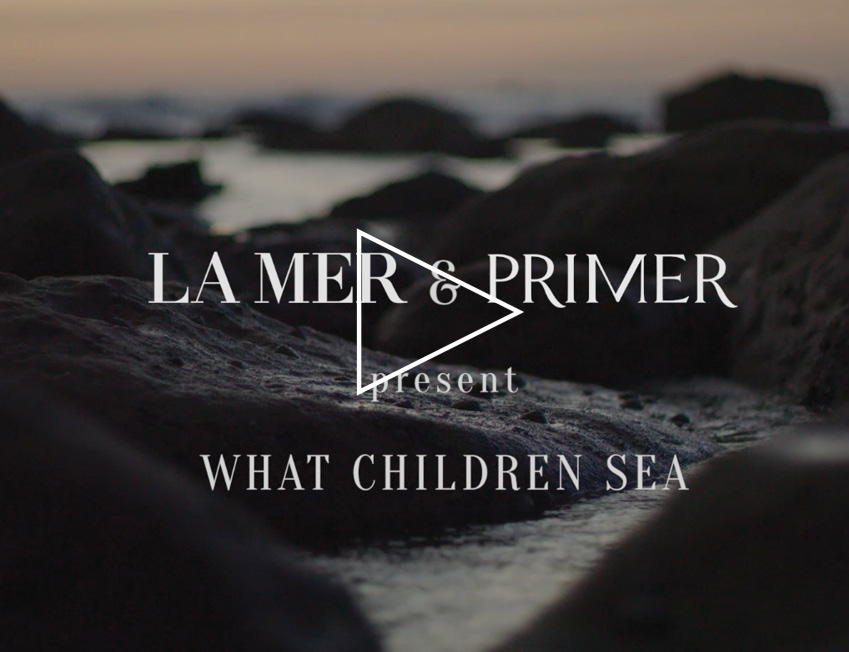
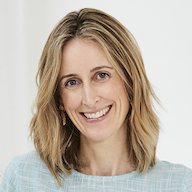
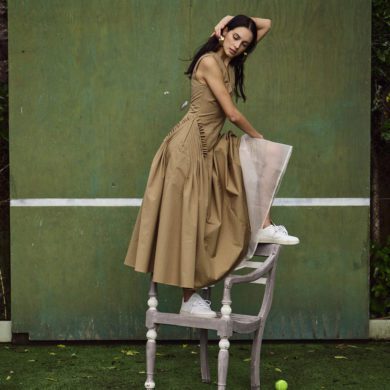
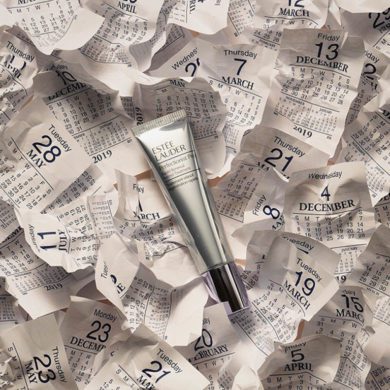
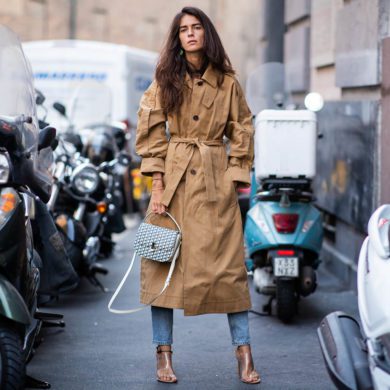

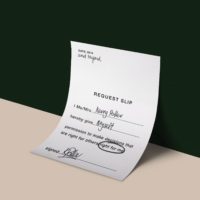
1 Comment